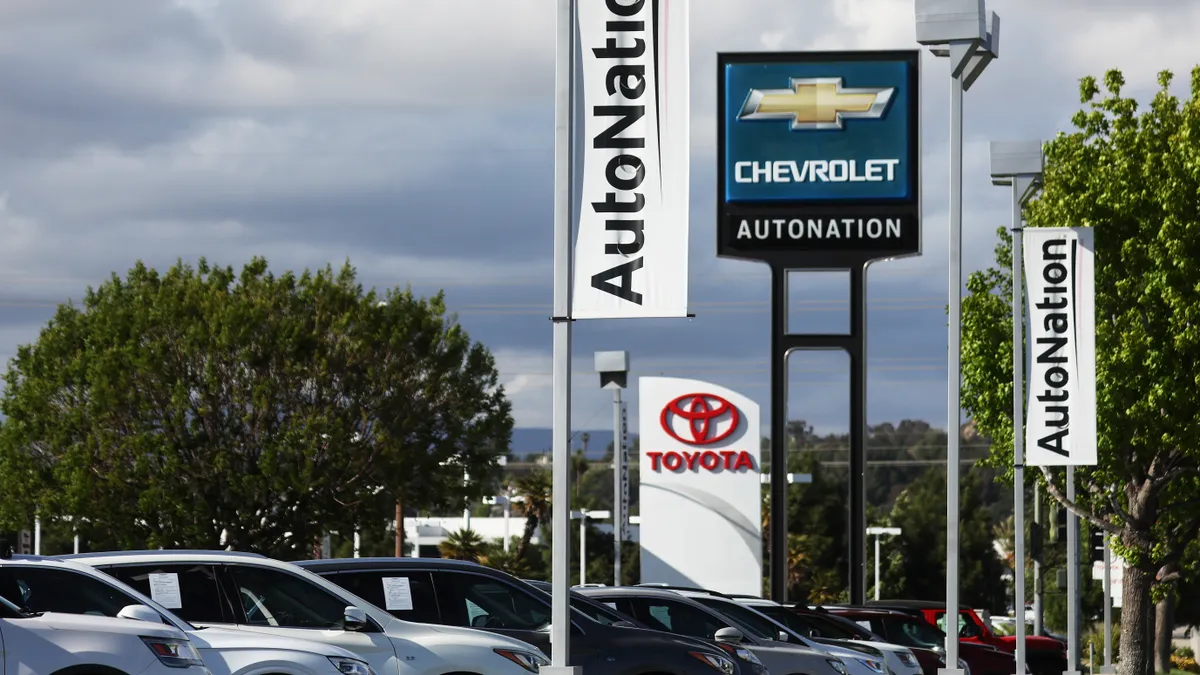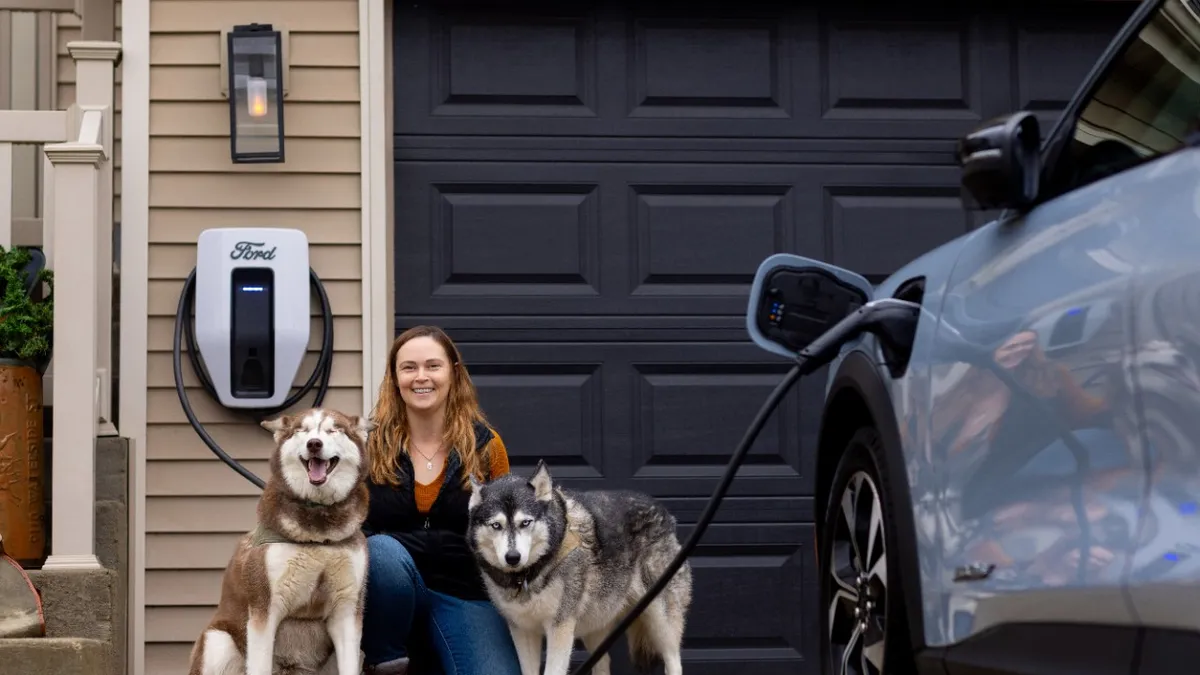Dive Brief:
- The Federal Trade Commission approved a rule Tuesday that aims to rein in car dealers’ bait-and-switch sales tactics and junk fees.
- The Combating Auto Retail Scams rule, previously known as the Motor Vehicle Dealer Rule, bans dealers from misrepresenting important information like price or charging consumers for add-ons that do not provide a benefit, such as warranty programs duplicating a manufacturer’s warranty.
- The CARS rule also requires dealers to disclose the offering price, inform consumers that add-ons are optional, provide information about the total payment when discussing monthly payments and get expressed consent for any charges.
Dive Insight:
The FTC initially proposed the rule in June 2022, citing concerns about rising car prices and more than 100,000 annual consumer complaints related to automobiles. They are among the 10 most common complaint types received by the agency.
“When Americans set out to buy a car, they’re routinely hit with unexpected and unnecessary fees that dealers extract just because they can,” FTC Chair Lina Khan said in a statement Tuesday. “The CARS Rule will prohibit exploitative junk fees in the car-buying process, saving people time and money and protecting honest dealers.”
The rule takes effect July 30, 2024.
The National Automobile Dealers Association, however, opposes the rule, saying that it will introduce unnecessary paperwork and complexity into the car buying process. The industry group hinted it may sue to block the regulation.
“This regulation is heavy-handed bureaucratic overreach and redundancy at its worst, that will needlessly lengthen the car sales process by forcing new layers of disclosures and complexity into the transaction,” NADA CEO Mike Stanton said in a statement Tuesday. “The FTC made up data to support its claims, then rejected calls to slow down the process and test the effectiveness of its proposal with real consumers. We are exploring all options on how to keep this ill-conceived rule from taking effect.”
In October, NADA backed the FTC Redo Act, which would have prevented the FTC from adopting the CARS rule without taking additional steps. U.S. Sens. Jerry Moran (R-Kan.) and Joe Manchin (D-W.Va.) cosponsored the bill. Congress has not voted on it.
“The FTC REDO Act simply directs the FTC to follow basic and essential regulatory safeguards that the agency did not follow or did incorrectly before proposing its rule,” Stanton said in October.
NADA, citing a study solicited and supported by NADA and carried out by the Center for Automotive Research, said the CARS rule would cost consumers about $38 billion over 10 years. The FTC, meanwhile, estimates the new rule will save consumers over $3.4 billion and 72 million hours of shopping time each year.
Consumer advocacy groups, however, opposed the FTC Redo Act. In a joint letter addressed to the House Committee on Energy & Commerce, 28 organizations, including the Center for Responsible Lending, Consumer Reports and Public Citizen, said they supported the CARS rule. They also questioned the validity of the NADA-funded study evaluating the potential effects of the new FTC regulation.
“NADA relies on a ‘study’ it funded through the Center for Automotive Research, but the study does not withstand any measure of scientific scrutiny,” the letter says. “Notably, NADA selected the participants for the study rather than conducting a random survey. NADA and its handpicked dealers also have a tremendous incentive to overestimate the time and costs of the Rule, and it is unsurprising that the study therefore produced highly unbelievable responses.”
Accountable.US, a government watchdog group that signed onto the letter, also says NADA spent more than $4.5 million lobbying against the CARS rule.
“The CARS Rule will bring down costs for consumers by giving them a fair chance to navigate an upfront buying process without tricks and traps,” said Liz Zelnick, director of Accountable.US’ economic security and corporate power program, in a statement Tuesday.












